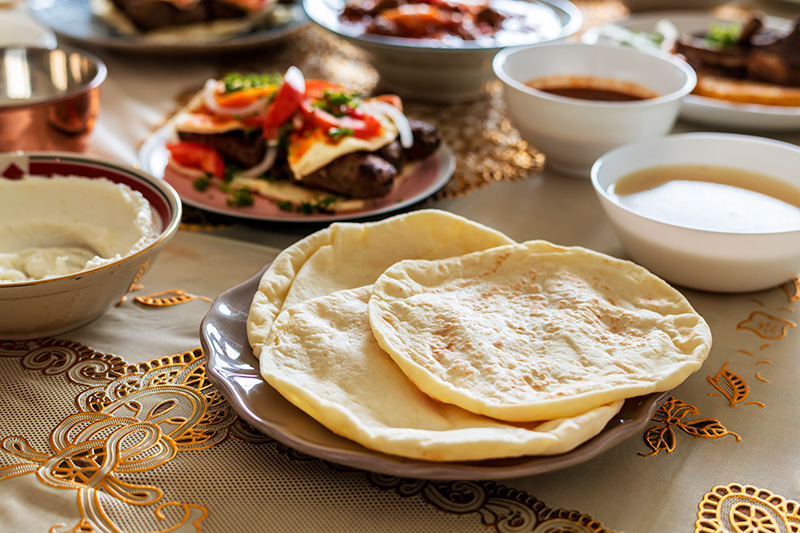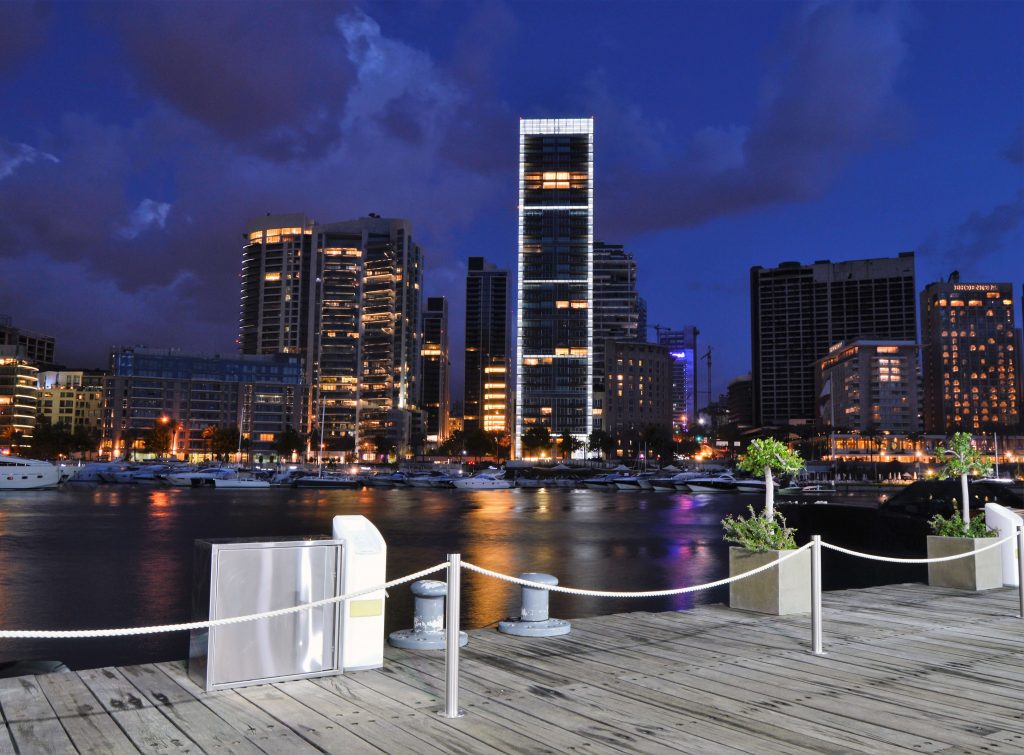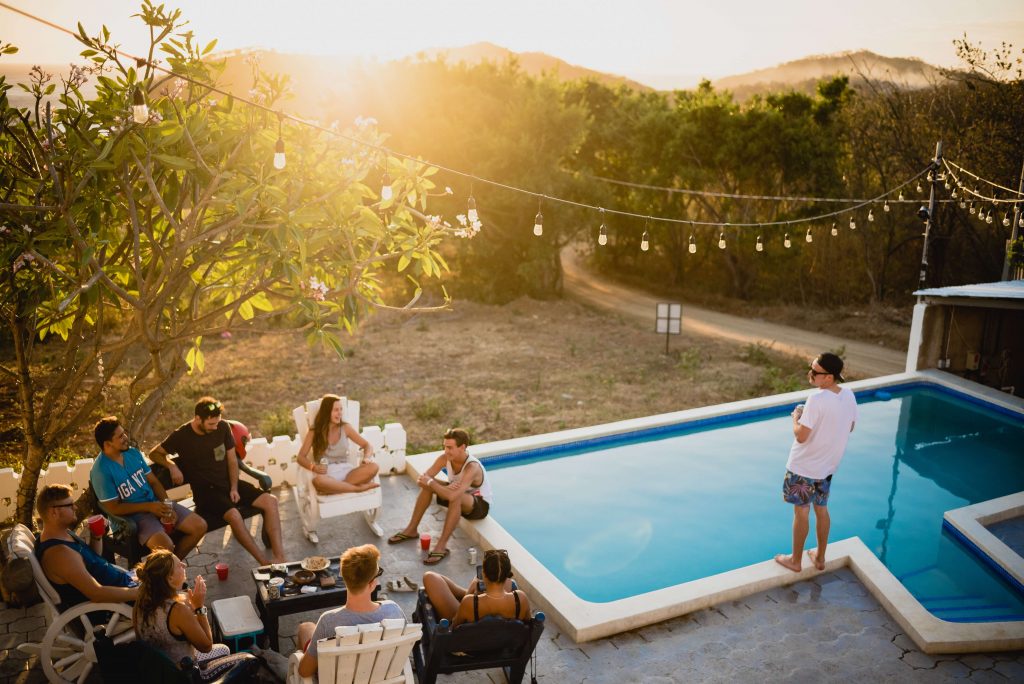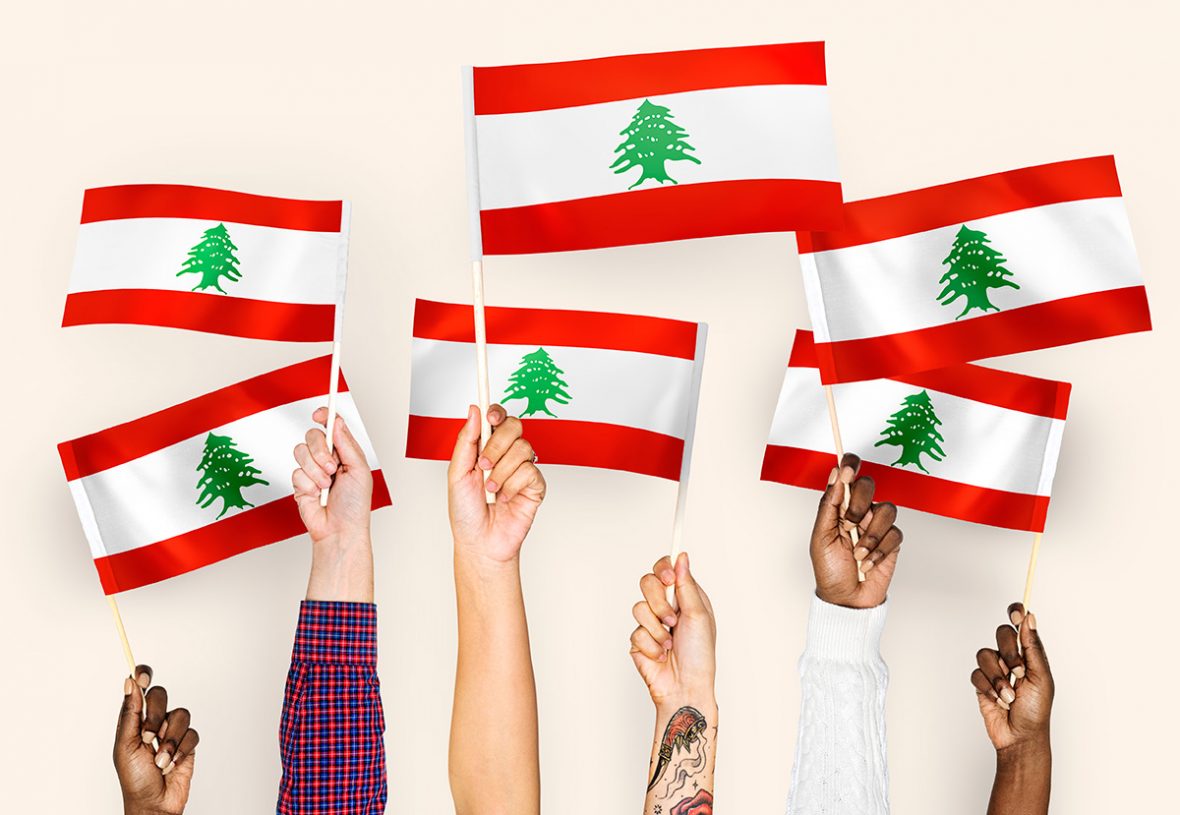If you have ever traveled or lived in Lebanon, you would have certainly come across these 11 common Lebanese Arabic phrases that you wouldn’t hear anywhere else in the world. These Lebanese words and phrases are used commonly among the Lebanese people to express their feelings, and you would need to be soaked in the Lebanese culture to really understand them.
Let’s get started with a few Lebanese Arabic phrases that you can use freely when visiting Lebanon.
Ouf shu taybe
 If you intend on translating it, ouf shu taybe means it tastes good, when referring to a meal or a drink.
If you intend on translating it, ouf shu taybe means it tastes good, when referring to a meal or a drink.
Using this phrase in Lebanon in a similar situation will show your high admiration for what you have been served and that you love it making your host feel extremely pleased and happy.
Habibe
 Habibe means ‘my dearest’ or ‘my beloved’ in Lebanese. In Lebanon, we use habibe with everyone male or female, and we almost add it to every sentence.
Habibe means ‘my dearest’ or ‘my beloved’ in Lebanese. In Lebanon, we use habibe with everyone male or female, and we almost add it to every sentence.
For example, we say — Hello habibe! How are you habibe? Can you get me a glass of water, please habibe?
When we use this word in between, it shows love and admiration towards the person we are addressing.
Min ouyoune
 In literal translation min ouyoune means ‘from my eyes’. In Lebanon when you ask someone for something and if he/she replies with ‘min ouyoune’, then the person is telling you that he/she will definitely do it with joy.
In literal translation min ouyoune means ‘from my eyes’. In Lebanon when you ask someone for something and if he/she replies with ‘min ouyoune’, then the person is telling you that he/she will definitely do it with joy.
Using it is very nice when someone asks you to do something for them, you make the other person feel appreciated.
Sahtayn
 Sahtayn literally means ‘double health’. It is used to wish someone just before or after their meal.
Sahtayn literally means ‘double health’. It is used to wish someone just before or after their meal.
It’s a very nice gesture and can be used between friends, family or colleagues as a way to make them happy.
afwan
 Afwan is used in a different context as either excuse me/welcome, however, it is more commonly used to call out someone you don’t know to ask for something.
Afwan is used in a different context as either excuse me/welcome, however, it is more commonly used to call out someone you don’t know to ask for something.
For example, it can be used to grab someone’s attention (if you don’t know their name) to ask for directions. It is commonly used in Lebanon and anyone responds to it.
 Shu el Akhbar?
Shu el Akhbar?
 Shu el Akhbar translates to ‘what are the stories’. Lebanese use it when they intend to ask you about what’s been going on recently in your life. It is like checking up on someone, how have they been, what are they going through or if they have any family stories to share.
Shu el Akhbar translates to ‘what are the stories’. Lebanese use it when they intend to ask you about what’s been going on recently in your life. It is like checking up on someone, how have they been, what are they going through or if they have any family stories to share.
Tisbah ala kheir
 The literal translation means ‘morning on peace’, yet the Lebanese use it very often when someone in the room is going to sleep or when you leave your friends and head home for the night. Tisbah ala kheir means ‘May you wake up tomorrow to a peaceful day’. A few words that show kindness and care.
The literal translation means ‘morning on peace’, yet the Lebanese use it very often when someone in the room is going to sleep or when you leave your friends and head home for the night. Tisbah ala kheir means ‘May you wake up tomorrow to a peaceful day’. A few words that show kindness and care.
Nharak said
 Do you want to tell someone to have a day filled with happiness? Just say nharak said! Nharak said literally translates to ‘your day happiness’ yet in Lebanon, it means a lot more. Telling someone nharak said means you hope that the person has a day full of happiness.
Do you want to tell someone to have a day filled with happiness? Just say nharak said! Nharak said literally translates to ‘your day happiness’ yet in Lebanon, it means a lot more. Telling someone nharak said means you hope that the person has a day full of happiness.
Shu el aamal?
 “Shu el aamal?” literally translates to “what is the doing?” Yet in Lebanon, people say it frequently when they intend to plan an outing. “Shu el aamal?” means “what is the plan?” It is always asked when something is being planned.
“Shu el aamal?” literally translates to “what is the doing?” Yet in Lebanon, people say it frequently when they intend to plan an outing. “Shu el aamal?” means “what is the plan?” It is always asked when something is being planned.
Shu el wadee?

In translation “shu el wadee?” translates to “What is the situation?” yet the Lebanese say it frequently within a conversation to ask about new stories or current situations in one’s life and work.
Lyom el sahra eena
 This is used when you want to tell your friends or family that the party is at your place. It is a kind of invitation to one’s house. “Lyom el sahra eena” translates to “Today the party is at ours.”
This is used when you want to tell your friends or family that the party is at your place. It is a kind of invitation to one’s house. “Lyom el sahra eena” translates to “Today the party is at ours.”
Continue learning with our Lebanese Arabic online course.
Andrie Steliou
Latest posts by Andrie Steliou (see all)
- 8 Ways to Help Keep Your Child Focused and Engaged in Online Learning - October 19, 2022
- How to Improve Social Intelligence Skills? - May 10, 2022
- How to Improve Organizational Skills at Workplace? - May 6, 2022


